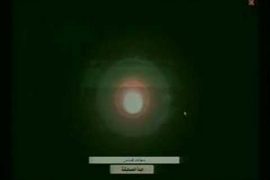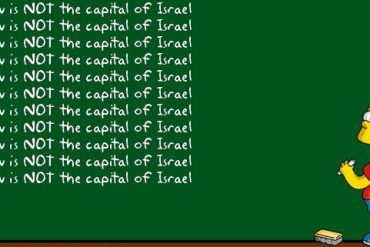On December 21st 2012 a report by BBC world affairs correspondent Mike Wooldridge appeared in the Middle East section of the BBC News website. The item originates from the ‘GMT’ programme which is part of BBC World News. Entitled “Struggling Syrians face tough winter“, both the synopsis and the report itself quote the organisation ‘Avaaz’ which is described as “a campaign group”.
The BBC is not being completely honest with its readers and viewers here. Whist Avaaz (read more about the organisation here) may indeed be known for its lobbying and campaigns on a dazzlingly wide range of subjects ranging from GM crops in Europe, the recent Palestinian Authority bid for UN observer status, Bedouins in the Negev and even various issues to do with the BBC itself – in Syria the unelected, unaccountable non-transparent organisation has extended itself way beyond its trademark ‘clicktivism’.
Mike Wooldridge’s report (which includes unidentified “amateur video” footage) came out on the same day as the Avaaz report cited in the programme synopsis, which may sound like an impressively speedy piece of journalism if one is not aware of the fact that for some considerable time, Avaaz has been acting as a stringer for the Syrian opposition by supplying information to Western journalists unable to enter Syria and facilitating the entry of others.
The BBC, however, is certainly aware of that fact: in a profile of the organisation dated February 2012, it wrote:
“After uprisings erupted in the Arab world last year, Avaaz used donations totalling $1.5m from almost 30,000 members to provide pro-democracy movements with “high-tech phones and satellite internet modems, connect them to the world’s top media outlets, and provide communications advice”, its website says.
“We’ve seen the power of this engagement – where our support to activists has created global media cycles with footage and eyewitness accounts that our team helps distribute to CNN, BBC, al-Jazeera and others.”
Avaaz also claims to have delivered more than $1.8m of medical equipment to the worst affected areas of Syria to keep underground hospitals going, set up a network of more than 400 citizen journalists across the country, and smuggled in foreign journalists.”
By no means shy about making the most of the publicity garnered from its operations in Syria, Avaaz has featured prominently in interviews given to other media outlets too, although some of its claims are disputed. This Guardian interview with Avaaz’s co-founder and director Ricken Patel states:
“To begin with, Avaaz sent a team of staff organisers to Lebanon after spotting the first signs of a nascent protest movement in Syria. Contact was then made with Syrian activists inside the country, and go-betweens recruited, notably Wissam Tarif, a highly respected Syrian pro-democracy leader who is widely consulted by journalists and senior western diplomats.”
Wissam Tarif, however, is Lebanese and executive director of an organisation named ‘Insan’ which is based in Spain – as even his Wikipedia profile (obviously written by a very serious fan) states. He has also been linked to the Muslim Brotherhood and Islamist-dominated Syrian National Council and has been one of the main conduits for information – sometimes of debatable reliability – coming out of Syria.
The interview goes on to say:
“It [Avaaz] has also smuggled 34 international journalists into the trouble zones. Marie Colvin, the Sunday Times journalist, entered using another conduit, but the French photographer Remi Ochlik who died with her as a result of Syrian government shelling was helped in by Avaaz.
Journalists who went in with Avaaz’s help have at times also needed help in escaping the violent suppression of the Syrian regime. So it was that Avaaz came to be involved in the evacuation mission of four western journalists last Sunday night.”
However, some of those journalists –including photographer Paul Conroy – say that Avaaz had nothing to do with the rescue, as can be heard here in an interview well worth listening to with the BBC’s Bridget Kendall.
Whatever one’s opinion of the situation in Syria or of the involvement of an unaccountable organization such as Avaaz in a conflict which is likely to affect the future of the Middle East long after Avaaz activists have flitted on to their next ‘sujet du jour’, one thing is clear. Avaaz’s involvement with the Syrian opposition makes it much more than just a mere “campaign group” as it is described by Mike Wooldridge.
One would expect BBC standards of accuracy and impartiality to have ensured that an organization which has taken upon itself the role of a support group for one particular side in a very acrimonious conflict would be clearly presented as such.





